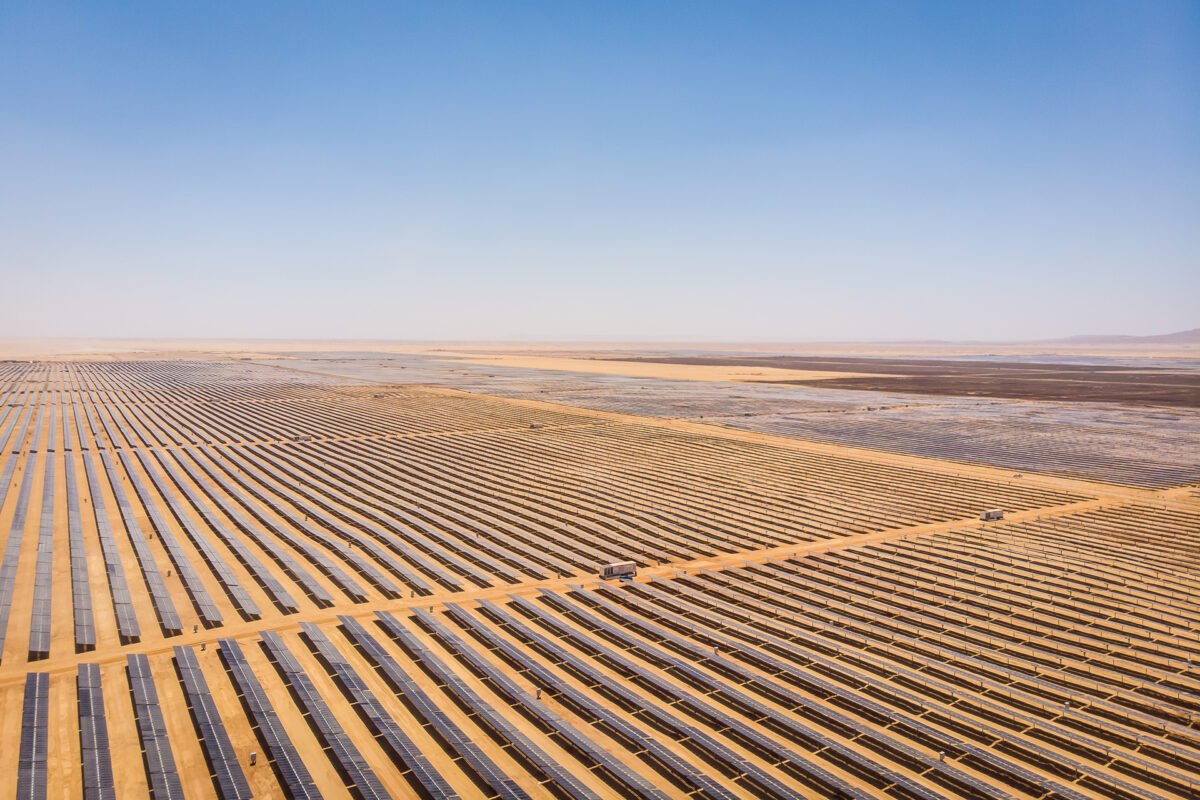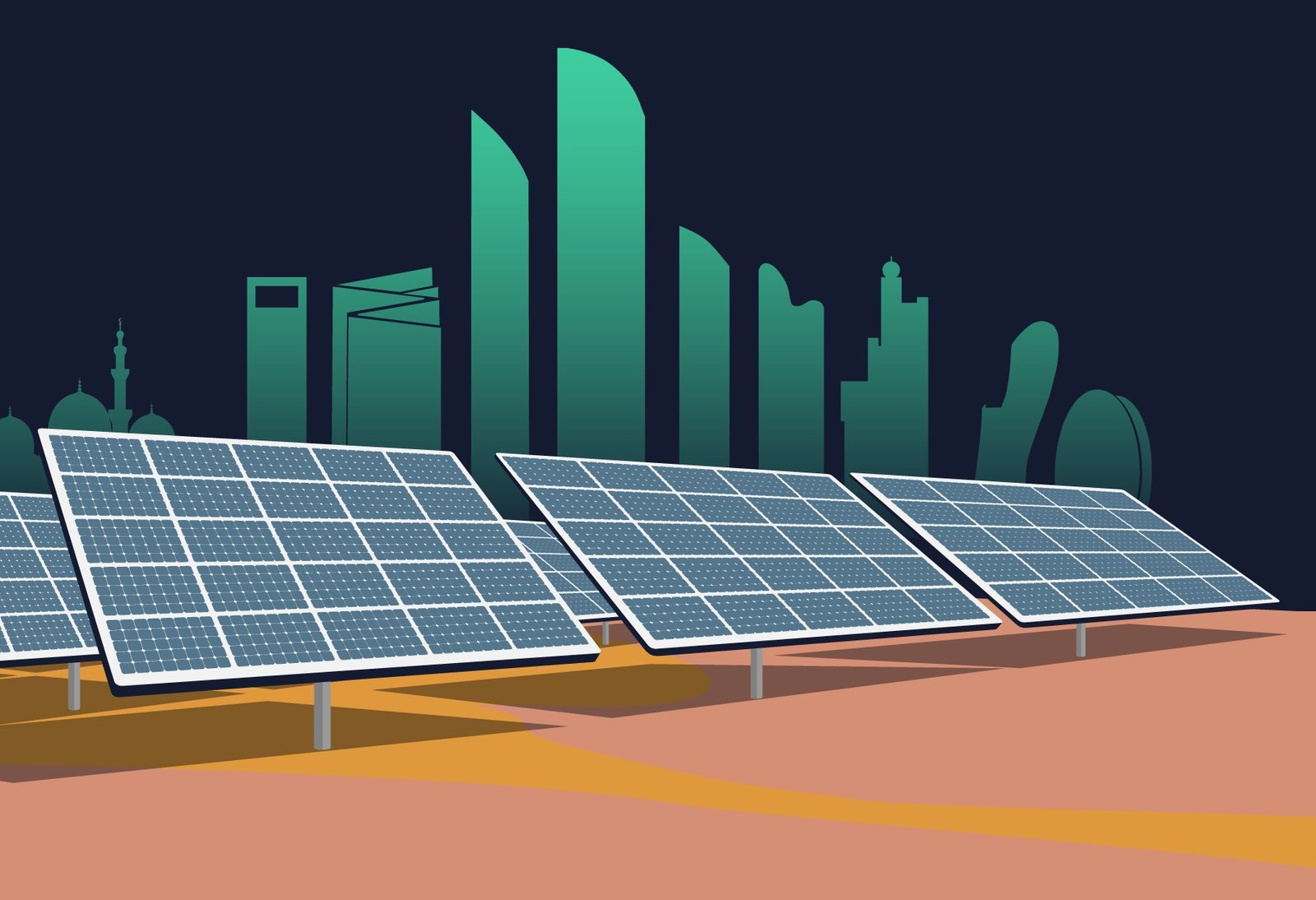Scatec ASA, a Norwegian renewable energy firm, has signed a 25-year power purchase agreement (PPA) with the Egyptian Electricity Transmission Company (EETC) for a groundbreaking hybrid solar and battery storage project.
The 1 GW solar plant with a 100 MW/200 MWh battery energy storage system (BESS) will be the first of its kind in Egypt.
The project, which will combine solar power generation with battery storage, is expected to play a crucial role in boosting Egypt’s clean energy capacity and vision.
Construction of the hybrid solar and BESS project is expected to begin in the first half of 2025.
“This will be the first hybrid solar and battery project in Egypt and demonstrates Scatec’s strong position as one of the largest renewable energy producers in the country,” said Scatec CEO Terje Pilskog.
He added that the company is now focusing on finalising land lease agreements, grid connection deals, and securing financing to prepare for construction.
Scatec has already signed a mandate letter with several development finance institutions for concessional financing and anticipates reaching financial close in early 2025.
In addition to leading the development, Scatec will also provide Engineering, Procurement, and Construction (EPC) services, as well as ongoing operations and maintenance (O&M) and asset management.
This is not Scatec’s first venture in Egypt’s renewable energy sector. In 2017, the company signed a 25-year PPA with the EETC for six solar plants near Aswan, totaling 380 MW.
The projects have been operational since 2019, further cementing Scatec’s role as a key player in Egypt’s shift toward renewable energy.
Egypt’s move to expand its renewable energy capacity comes at a critical time, as the country grapples with rising electricity consumption and a decline in domestic gas production.
The government has set a goal of achieving 42% of its energy from renewable sources by 2030, up from 11.5% in 2023.
Scatec’s deal is part of a broader push by Egypt to enhance its clean energy infrastructure. Just last month, the Egyptian Cabinet approved a project with UAE-based renewables developer Masdar to add 1,200 MW of solar energy capacity and 240 MWh of battery storage in Egypt.
The project is part of a larger cooperation agreement between Egypt and the UAE to add 4 GW of renewable energy capacity to Egypt’s power grid by next summer.
In addition to solar energy, Masdar and its partners are also working on a massive 10-GW wind project in Egypt, having signed a land access agreement with the Egyptian government in May 2024. The Abu Dhabi-based developer is also collaborating with local partners to build a 4-GW green hydrogen production facility in the country, as part of Egypt’s broader effort to establish itself as a leader in Africa’s renewable energy landscape.
The Egyptian government has committed to increasing its solar power capacity to meet its clean energy targets. By the end of 2023, the country had deployed 1,836 MW of solar energy, according to the International Renewable Energy Agency (IRENA).
To reach its target of 42% renewables in its energy mix, including 22% solar, Egypt estimates it will need to add 31 GW of solar capacity by 2030.
In May, the Egyptian Electricity Holding Company (EEHC) launched a tender for an 8.2 MW solar plant combined with a 2 MW/4 MWh BESS in Siwa Oasis, located in the western part of the country.
The project aims to enhance the existing microgrid and provide reliable electricity to rural areas.
Beyond Egypt, Scatec has been active in promoting renewable energy across Africa. In December, the company began supplying electricity from its Kenhardt plants in South Africa’s Northern Cape.
The project, which features 540 MW of solar power and 225 MW/1,140 MWh of battery storage, is one of the world’s largest hybrid solar and battery storage facilities.
It delivers 150 MW of power to the national grid under a 20-year PPA with Eskom, South Africa’s electricity utility.





